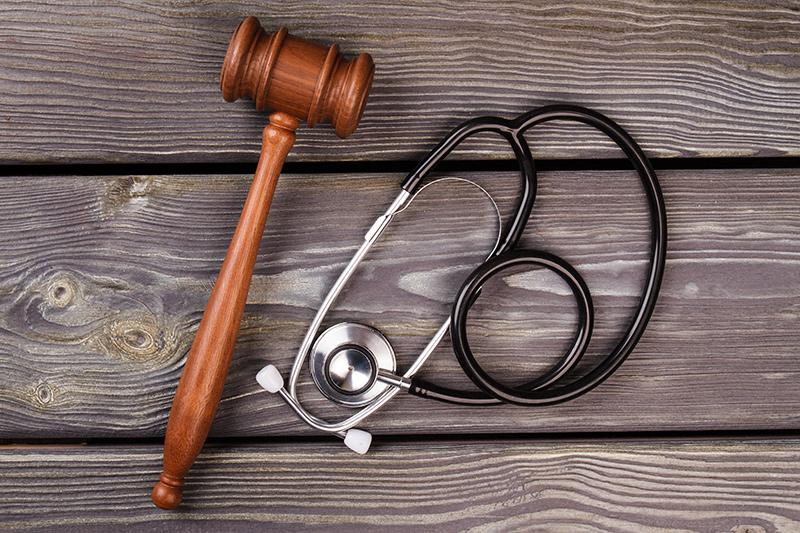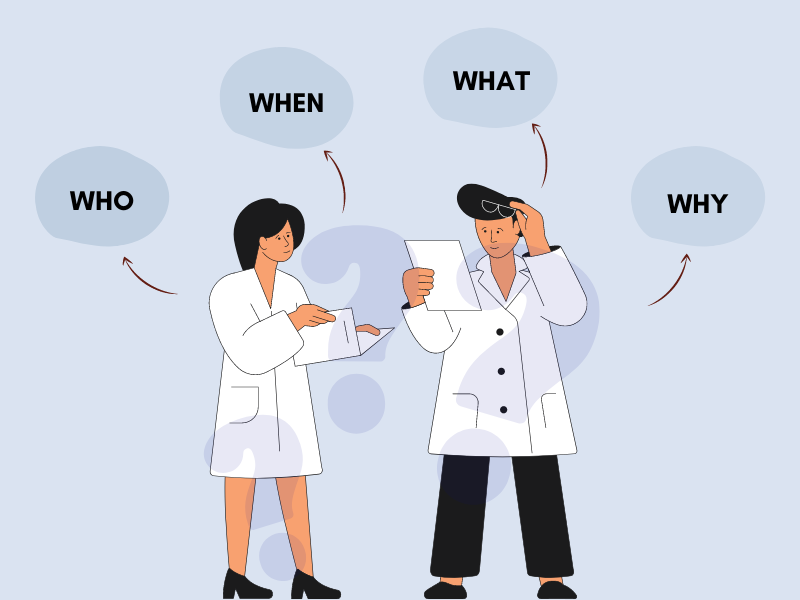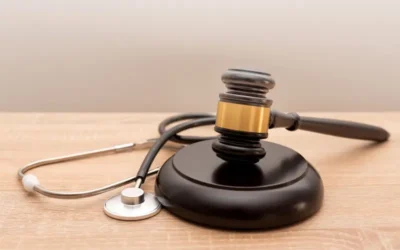Medical records include important details about a patient’s care provided by the medical team, serving as both a crucial tool for ensuring proper medical services and a legal document. Beyond facilitating optimal healthcare, these records play a key role in processes such as medical peer reviews and insurance eligibility assessments. It is imperative to maintain confidentiality when utilizing the information, including patient identification and clinical data, for medical or legal purposes such as chart reviews.
Partner with us for top-notch medical review services!
Role of Medical Records in Medico-legal Cases
From a legal viewpoint good record keeping will work in the provider’s favor if he/she needs to respond to or defend against a complaint or claim. In claims filed for negligence, contemporary records of all decisions made about a patient’s care and why those decisions were made are vital. In medico-legal cases, these records serve as invaluable documents that provide a comprehensive and accurate account of a patient’s medical history, diagnoses, treatments, and outcomes. For legal proceedings, these records help to establish a clear timeline of events, aid in the determination of liability, and serve as credible evidence in court. Medical records not only document the patient’s condition but also record the healthcare provider’s observations, assessments, and decisions. In medico-legal cases, such records help legal professionals and expert witnesses assess the standard of care provided, identify any deviations, and determine whether medical negligence or malpractice has occurred.
Medical records, though highly confidential, may be released for various purposes, including requests from patients, their relatives, medical staff, and third-party entities. However, release requires proper authorization from the patient or their representative. It is crucial for healthcare providers to ensure that medical records thoroughly document patient care progress, including decisions made and the supporting evidence, to facilitate effective communication with future treating physicians and providers. This comprehensive documentation is essential from a medical standpoint.
What Constitutes a Good Medical Record?
A good medical record should be comprehensive and accessible, legible and properly dated. Good note taking is very important.
The following aspects should be clearly recorded.
- History: This refers to the condition of the patient and relevant past history including concurrent illnesses, medications prescribed, and allergies if any.
- Examination: Must contain all positive and applicable negative findings, all pertinent observations and measurements including temperature, blood pressure, and pulse.
- Diagnosis: The diagnosis made must be accurately recorded, showing the reason for making such a diagnosis. Any differentials or uncertainties must be clearly recorded.
- Investigations: These should include all imaging tests such as X-rays or scans, and all lab results.
- Medication Management: These records should provide information regarding the drugs prescribed and administered with dosage. Information about other treatments such as physiotherapy must also be given.
- Referral and Follow-up: Any follow-up tests recommended, future appointments made, and referrals must be mentioned clearly.
- Patient Education: Here all details of discussions with the patient regarding risks and benefits of the treatment, treatment plan, prognosis, and potential complications should be recorded.
- Patient Consent: The consent given by the patient must be recorded, making sure that it takes into account all the above-mentioned aspects.
When considering the medical record as a legal document, complete and accurate records are the best alibi for the provider and can stop a medico-legal claim from proceeding any further.
Well-prepared patient records will contain answers to the fundamental questions such as who (details of the patient who was provided the treatment or service, the providers who administered the treatments), when (the date and time when the patient was seen or when a test or other procedure was undertaken, or a treatment given), what (what was done, said, observed, instructed, or checked) and why (justification regarding why the decisions were taken with regard to patient care).
An important thing for providers to note is that any improper alteration of the medical records with a view to mislead the parties and the court in legal proceedings could lead to serious admonishment by a court. It could also prove to be the ground for regulatory criticism on occasions where there is a duty to maintain accurate medical records.
Consistent and clear medical records are crucial for effective defense in legal cases, providing a comprehensive understanding of patient care. Such records benefit the medical team, the patient, courts, and healthcare providers in explaining and defending actions during legal proceedings.
Ensuring Legal Integrity of Medical Records
Given the importance of the medical record as a legal document, here are some things healthcare providers need to consider.
- Whether the medical records are all maintained in the formal clinical record and whether any record is maintained outside of that formal clinical record.
- Whether outpatient appointments are recorded accurately and efficiently.
- Whether a written record of patient consultations and follow-up instructions are maintained.
- Whether the material risks of a procedure have been discussed with the patient at their outpatient clinic and whether these discussions have been clearly documented in the medical record.
- Whether all details of consultations with the patients are recorded in the written or electronic medical record.
- Whether the actions taken on receiving lab test results, and other investigative exams have been correctly recorded.
- Whether all follow-up instructions and information including those the patient should follow up with the provider at a certain time have been recorded.
- Whether standard and appropriate abbreviations are used in the clinical records so that it can be understood by other practitioners.
- Whether the medical records are appropriately dated, signed and the time recorded correctly.
- Whether the medical records are factual and objective, and not subjective.
As mentioned earlier, medical records are important evidence in medical negligence and injury claims and must therefore be carefully written and maintained. During a medical record review, the medical chart should provide clear, accurate, chronological, consistent, and complete details about the patient care provided. A medical review company can extend that much-needed helping hand to attorneys, saving them from the trouble of deciphering complex medical records. Professional medical review professionals can efficiently handle all the above and other issues related to patient records because reviewing medical records is their core task, to carry out which they have the necessary prowess, time, and dedication.
Revolutionize your legal approach with our specialized medical review services.
Request a consultation today at (800) 670-2809!





